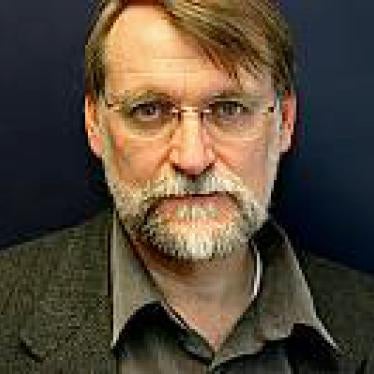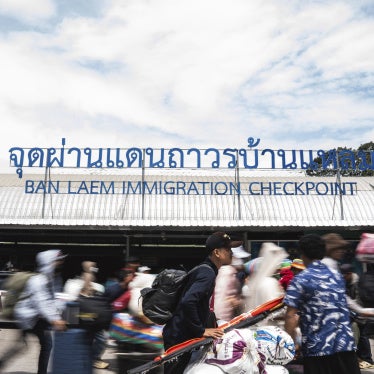When Gen Prayuth Chan-ocha announced on July 11 that the Thai refugee camps on the Thai-Myanmar border would be emptied, many wondered if there really is new resolve by the National Council for Peace and Order (NCPO) to repatriate the 130,000 Myanmar refugees who have been living in Thailand for many years.
Gen Prayuth cited national security as the reason for closing the camps, the same reason Thai officials have given over the years. It looked like his statement might be more than just rhetoric, since he cited a repatriation agreement in principle with the Myanmar army commander-in-chief, Gen Min Aung Hlaing.
On July 17, after the two of them met, the Thai Ministry of Foreign Affairs issued some reassurances, saying that both countries had agreed on "a safe return in the future in accordance with humanitarian and human rights principles."
Notwithstanding these assurances, refugees in the border camps scrutinise every statement by Thai authorities for signs about a future that is out of their hands. Anxiety is the norm, rumours flourish, a sense of precariousness is ever present, and fear is never far away. No text has been made public for this purported agreement. The fact that it is between the Thai and Myanmar militaries and not with Myanmar civilian authorities is an obvious cause for alarm for refugees who fled killing, forced labour, land confiscation, and many other abuses by the Myanmar army.
The refugees still have security and livelihood concerns. Eastern Myanmar is one of the most heavily landmined areas of the world after six decades of conflict. Myanmar still has multiple armed groups, and though many have signed ceasefire agreements, the army is still an abusive force that routinely violates international humanitarian law. And in many potential areas of return, there has been no preparation for agriculture, basic health, education and sanitation services, or employment opportunities.
Refugees also scrutinise every official action for hidden meaning. Thai authorities have been carrying out new "headcounts" in the camps. One media report, still unconfirmed by authorities, is that about 3,000 camp residents have been screened out in camps in Ratchaburi and Kanchanaburi (where recent headcounts have not occurred) as non-refugees — leading to even more rumours and fears.
The recent stricter enforcement of restrictions on entry and exit from the camps also exacerbates fears. While the Interior Ministry says the camps are officially closed and that refugees are not allowed to work, the reality is that the camps have become pretty porous after 30 years.
It’s not uncommon for refugees to leave the camps temporarily to work so they can supplement the relatively meager assistance their families receive from humanitarian agencies. The new restrictions on movement are already causing hardship in the camps, especially since food rations to the camps were also recently reduced.
Until now, the quiet to and fro movements from the camps have also allowed some refugees to make brief surreptitious visits to the areas they fled in Myanmar to check out abandoned villages and properties and assess for themselves the possibility for safe return in the future. If the military is really interested in encouraging voluntary repatriation, it should, in fact, informally recognise this scouting process as important.
A national security mentality that emphasises control and that operates on the assumption that a refugee problem can be solved by moving people from point A to point B is likely to engender lawlessness, not security.
Repatriation before conditions are right not only risks endangering the returnees, but may also overwhelm local communities in areas of return, exacerbate political and ethnic tensions, and cause additional displacement that destabilises unsteady post-conflict situations.
In the longer term, forcible returns also cause resentment and bitterness toward the former host country instead of the gratitude and sympathy that one would expect refugees would feel after being protected for many years. But Thailand’s history with bringing protracted refugee situations to a close, dating back to the Cambodian refugee repatriation of the early 1990s, has been characterised by coercion that has poisoned relations between Thailand and its former refugees.
As a matter of national security, it would be far more effective for the NCPO to take a gradual approach that ensures that repatriation is safe and sustainable. Thailand should engage the refugees themselves and the communities to which they will be returning. It should and allow the refugees to build confidence over time by encouraging voluntary cross-border movement, first through look-and-see visits, and then by longer stays for home reconstruction, field planting, and infrastructure development.
Instead of a big one-time repatriation, Thailand should consider allowing back-and-forth movement that enables families and communities to return in stages as their capacity for sustainable reintegration improves and their confidence in their acceptance back home is restored.
Had such a gradualist, consultative, and gentler approach been taken during the repatriation of Lao Hmong refugees in 2009 and the Cambodian refugees in the early 1990s, their returns might have been far less traumatic and less damaging to human rights principles. The refugees who were returned might have had less bitterness and resentment toward Thailand, and Thailand might be more secure today in relation to its Lao and Cambodian neighbours. That, of course, is a matter of speculation, but it is something worth mulling over as the NCPO considers the Myanmar refugee repatriation.









